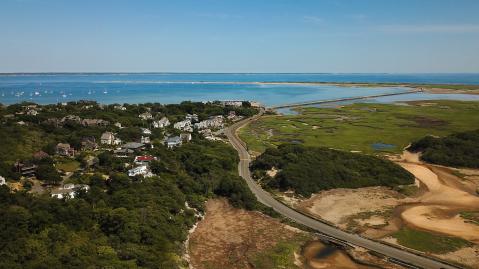Four jurisdictions sign Transport and Climate Initiative (TCI) final MOU

On December 21 2020, Massachusetts, Connecticut, Rhode Island, and the District of Columbia became the first four jurisdictions to sign the Transport and Climate Initiative Program (TCI-P) Memorandum of Understanding (MOU), advancing the multi-state program aimed at reducing emissions from the transportation sector. The final MOU comes after the initial release was postponed due to the impacts of the COVID-19 pandemic.
The Transport and Climate Initiative (TCI), a cross-regional initiative of 12 Northeast and Mid-Atlantic states and the District of Columbia, was founded in 2010 with the aim of cutting emissions from the road transportation sector and addressing environmental justice concerns. With the signing of the MOU, signatory jurisdictions must now finalize a “model rule” defining regulations for the system and align the resulting model rule at the state level. Signatories are expected to start implementing the program in 2022.
The MOU also highlights elements of the model rule to come, and specifically outlines design features of the program, including each jurisdiction’s emissions cap and reduction rate. The 2023 base annual CO2 emissions cap for each signatory is as follows, declining by 30% by 2032, by equal increments each year:
| Connecticut: | 13,497,957 tonnes |
| District of Columbia: | 877,715 tonnes |
| Massachusetts: | 24,467,216 tonnes |
| Rhode Island: | 3,291,658 tonnes |
Details on allowance allocation and market stability mechanisms, such as a cost containment reserve, emissions containment reserve, and a minimum auction reserve price are also included. There is to be no limit on the banking of allowances for future compliance periods, and the limited use of offsets will be permitted. The current schedule indicates that the first reporting period of the TCI-P will begin as early as January 2022, with the first three-year compliance period set to start in January 2023, one year after initially proposed.
In signing the MOU, participating jurisdictions have also agreed that at least 35% of revenues generated through the TCI-P will be strategically invested in “equitable, less polluting, and more resilient transportation”. Each signatory jurisdiction will establish a representative Equity Advisory Body, specifically designated to ensure that the impacts of the program are effective and just, and that both the policies and flow of investment are transparent.
Over 40% of greenhouse gas emissions in the Northeast region stem from the transportation sector. In addition to program design elements and a timeframe for implementation, the TCI-P final MOU outlines a number of the program’s environmental and social commitments, including improving air quality and public health, improving access to clean transportation choices, and promoting economic opportunities and job creation.
This final MOU comes after months of preparatory modeling, negotiations, drafting, and cooperative policy design. A joint statement released by all TCI jurisdictions also reiterates members’ commitment to continue working together on the various elements of the program. Signatory jurisdictions hope that more states will be encouraged to join the program. Delaware, Maryland, New Jersey, New York, North Carolina, Pennsylvania, Vermont, and Virginia have participated actively in developing the TCI-P and have the opportunity to join the program in the future.
